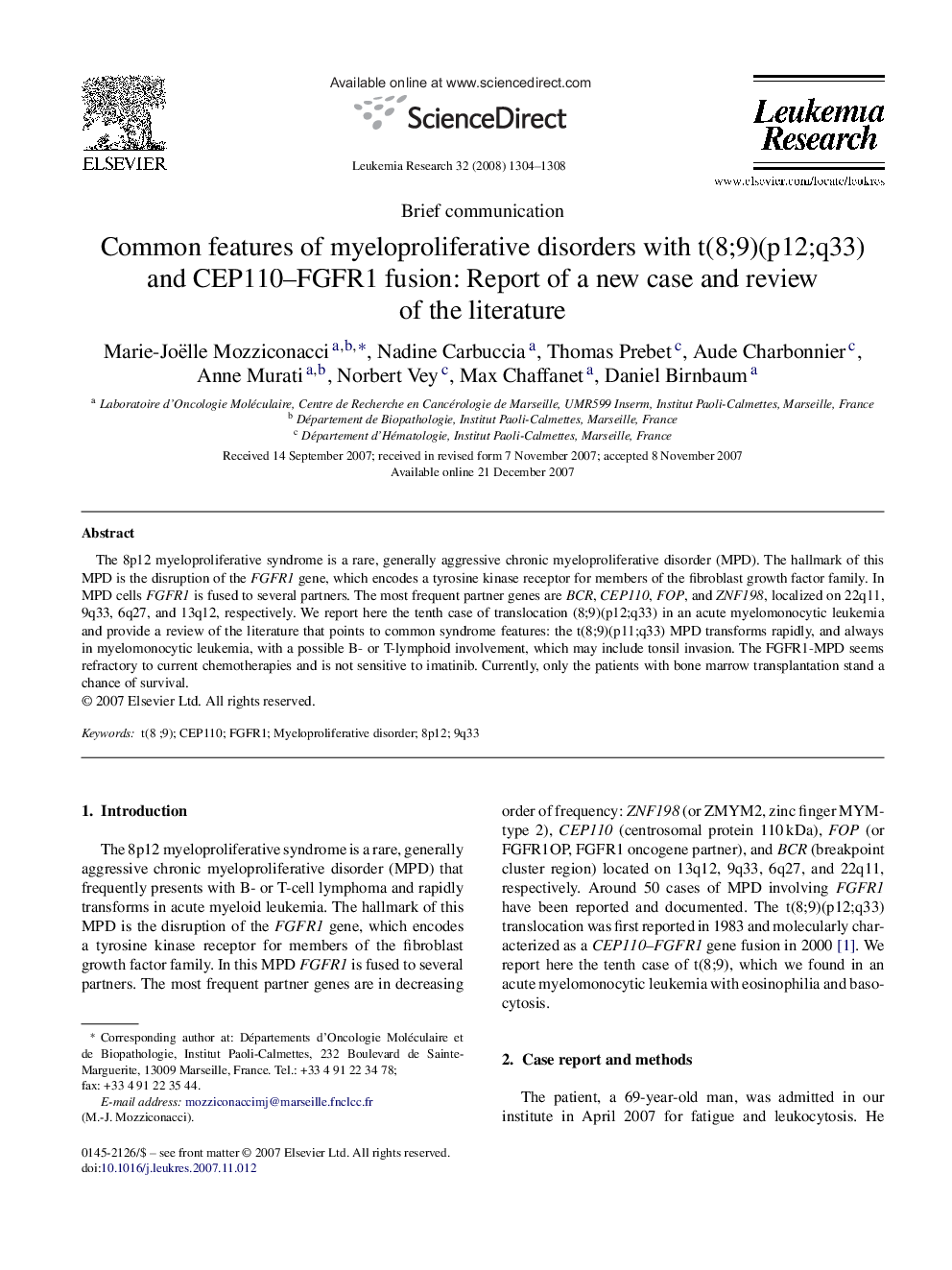| Article ID | Journal | Published Year | Pages | File Type |
|---|---|---|---|---|
| 2139320 | Leukemia Research | 2008 | 5 Pages |
The 8p12 myeloproliferative syndrome is a rare, generally aggressive chronic myeloproliferative disorder (MPD). The hallmark of this MPD is the disruption of the FGFR1 gene, which encodes a tyrosine kinase receptor for members of the fibroblast growth factor family. In MPD cells FGFR1 is fused to several partners. The most frequent partner genes are BCR, CEP110, FOP, and ZNF198, localized on 22q11, 9q33, 6q27, and 13q12, respectively. We report here the tenth case of translocation (8;9)(p12;q33) in an acute myelomonocytic leukemia and provide a review of the literature that points to common syndrome features: the t(8;9)(p11;q33) MPD transforms rapidly, and always in myelomonocytic leukemia, with a possible B- or T-lymphoid involvement, which may include tonsil invasion. The FGFR1-MPD seems refractory to current chemotherapies and is not sensitive to imatinib. Currently, only the patients with bone marrow transplantation stand a chance of survival.
